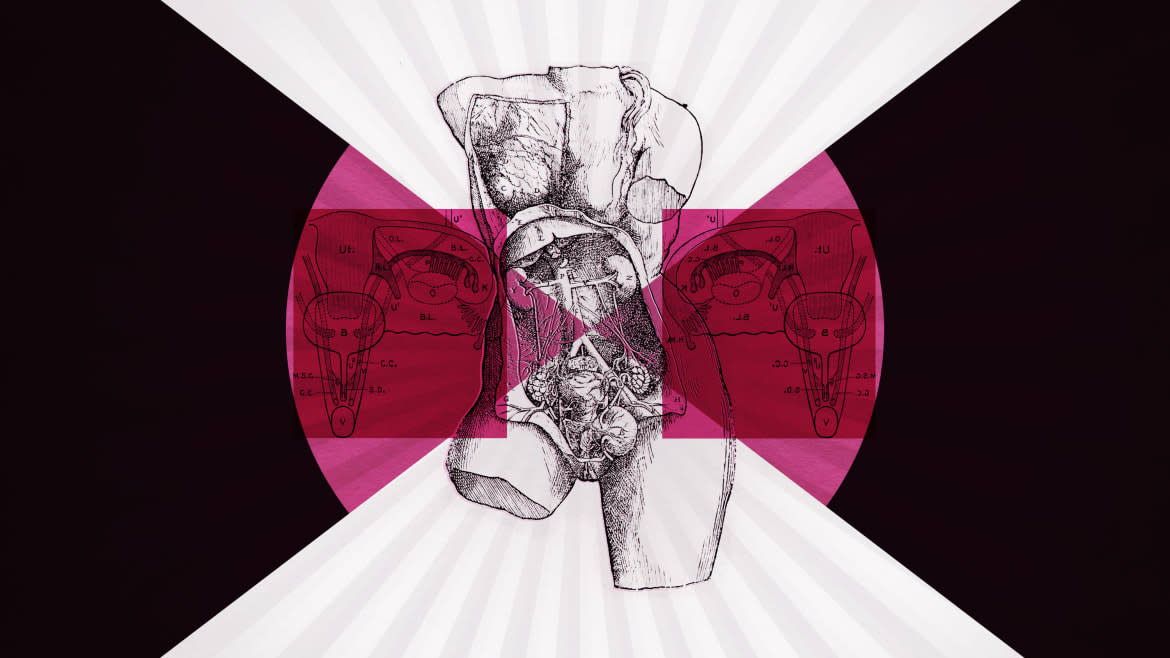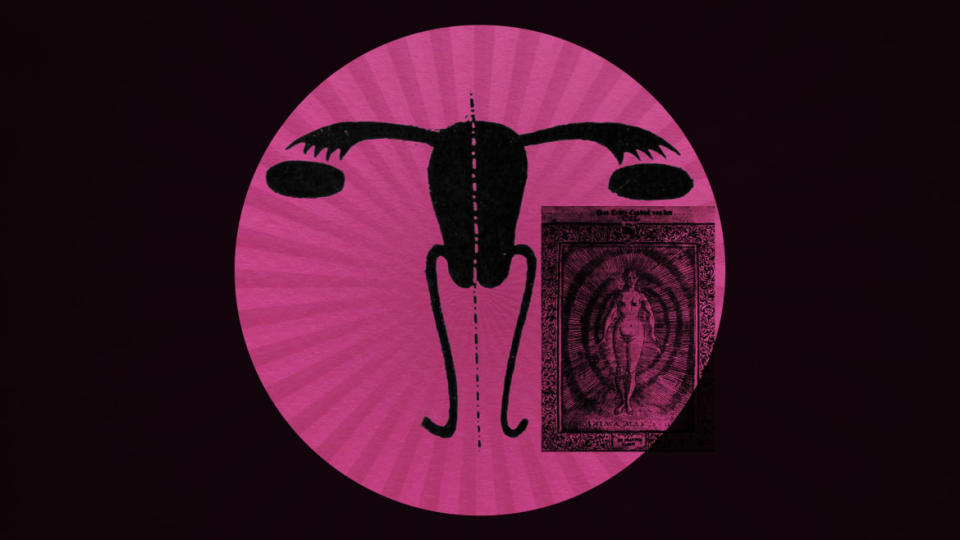It’s Time to End the Medical Gaslighting of Menopausal Women

“There’s a WW in Exam Room 3. Good luck with that one,” my colleague called out to me in reference to my next patient. I grabbed the chart, looked at her complaints, took a deep breath to steel myself, and walked into the exam room.
When I was in medical school, and then a new doctor in the 1990s, “WW” was the acronym for patients who came in complaining of a cluster of symptoms: weight gain, brain fog, irritability, joint pain, decreased sex drive, poor sleep, and fatigue. These were “whiny women.”
I Learned the Hard Way Just How Barbaric American Health Care Is
We knew enough to understand these patients were likely entering menopause, but we had precious little instruction or education on the proper diagnosis, management, and treatment of it. Further, we’d been taught that women tend to complain and somaticize symptoms because of dissatisfaction with life circumstances and stress. The “It’s all in her head” medical mantra was very much alive and well. If she was found to be postmenopausal, we would offer hormone replacement therapy (HRT) and send her on her way. If she was transitioning into menopause, well, we offered nothing.
I was in the last year of my training in obstetrics and gynecology in 2002, when the preliminary results of the publication of the Women’s Health Initiative’s study on HRT were released—which included misrepresented facts that scared women (and their doctors) into stopping all hormone replacement therapy. This left an entire generation of women suffering and orphaned of any meaningful medical management. Their “whining” continued, and we advised our patients to tough it out. The lucky ones were offered antidepressants as a “cure-all” for their symptoms, which likely made these women feel all the more dismissed, broken, infuriated, and helpless.

In the United States alone, one-third of the female population is peri- or postmenopausal. More than one million women experience complete menopause each year, with about 5 percent starting the process as early as their forties. Symptoms of perimenopause can begin seven to 10 years before complete menopause occurs. You may assume that, given these numbers, women’s health-care providers should discuss the management of menopause and perimenopause routinely and openly. But even in 2022, this essential aspect of women’s health care is still stigmatized and shrouded in shame.
A large part of this stems from the cultural guilt associated with growing, which holds that once women lose their fertility, they must be withered, washed-out, and unworthy.
Sadly, the negative societal perceptions of menopause and failure of the medical community to prioritize the health of this large group of individuals has resulted in a knowledge gap among women entering this phase of their lives, which could have a substantial negative influence on their overall quality of life. If you don’t feel comfortable talking about your symptoms with friends, family, and, most crucially, your doctor, you may find it difficult to comprehend (let alone control) what is exactly happening to your body.
Twenty years of clinical practice, countless hours of reading the latest studies, and my own menopause journey—complete with all the same life-disrupting symptoms my many patients have long complained of—have taught me that the WHI study was severely flawed, with many of its findings subsequently disproven.
Hormone replacement therapy is safe for the vast majority of patients who are without contraindications, and the risk of breast cancer is minimal. HRT promotes overall quality of life, improves vulvovaginal health, decreases the risk of osteoporosis, and, when started early, may be protective for cardiovascular disease and Alzheimer’s.
Meet the Doctors Taking to the High Seas to Perform Abortions
Fortunately, there is hope on the horizon.
There has been an explosion over the past decade in the number of women telling their stories on social media and finding more sympathetic listeners, in the form of other women.
Unwilling to accept the status quo and suffer in silence, this generation of menopausal women is sharing their journeys, names of helpful healthcare providers, as well as functional strategies for navigating this time in their lives. They are arriving at medical appointments armed with research articles, lists, and resources to share with their providers so that they can better advocate for the care they deserve.
Celebrities such as Naomi Watts, Angelina Jolie, Michelle Obama, and Salma Hayek are all openly discussing their own menopause journeys, thus helping to lift the secret, shame, and taboo surrounding this transitional time.
Michelle Obama Gets Candid on Undergoing Hormone Therapy for Menopause
Menopause specialists such as Dr. Jen Gunter, author or The Menopause Manifesto, Dr. Louise Newson, and Dr. Heather Hirsh are leading important conversations on social media and their followers are loving it, by the hundreds of thousands. When I turned to social media to discuss my own menopause journey, the conversation exploded into two million TikTok followers eager to participate, share their stories, and ask for advice.
Change is coming in science, too. The North American Menopause Society is promoting groundbreaking menopause treatment research, offering training and certification in menopause care, and providing a helpful list of certified providers on its website.
Other medical societies, such as the American Heart Association, are recognizing the importance of the menopause transition on disease states, specifically cardiovascular disease risk. And most recently, a team of researchers from the University of East Anglia and the University of Edinburgh have found evidence of the “potential importance” of hormone replacement therapy (HRT) in reducing the risk of Alzheimer’s disease in women carrying the APOE4 gene, which puts them at genetic high risk for the disease.
There is also growing understanding that if a woman has a contraindication to hormone replacement therapy, there are a multitude of other pharmacologic, over the counter, nutritional, and supplementation options to help with symptoms and promote health.
But there is still so much more to do. The outpouring of stories of frustration, misdiagnosis, gaslighting, and confusion have made many women’s health care providers realize there is a systemic problem in how we provide basic care to a woman during her menopausal journey and in how we teach and train our providers to care for these patients. They also now seem to appreciate there is a problem with how our society views and treats menopausal women in general.

A simple PubMed search on “pregnancy” finds 1.1 million research articles over all time, but when “menopause” is searched, only 94,500 articles come up. This 10:1 ratio holds over the past 10 years as well.
Since more people will become menopausal than bear children, and we can make just as much impact in their overall health in menopause as in pregnancy, it is staggering that menopause receives such little research attention.
It is no secret that a phenomenal disservice has been done to our gender.
This stage of life is just as important as the childbearing years.
You are not a whiny woman, you are not crazy and no one, especially your health-care provider should make you feel as if you are. You don’t have to take it anymore. You have options for treatment and care. You are a person who deserves a beautiful, healthy menopause, one that’s filled with strong muscles and bones, a clear mind, and a body free from pain and disease.
Mary Claire Haver, M.D., is a board-certified OB/GYN and a Certified Culinary Medicine Specialist. She has chosen to focus her practice on the care of the menopausal woman. She is the author of the national bestseller, The Galveston Diet: The Doctor-Developed, Patient-Proven Plan to Burn Fat and Tame Your Hormonal Symptoms.
Get the Daily Beast's biggest scoops and scandals delivered right to your inbox. Sign up now.
Stay informed and gain unlimited access to the Daily Beast's unmatched reporting. Subscribe now.


